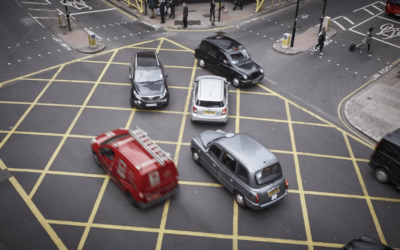Funding offered to give UK road safety more attention, but is it enough?

In response to the Coronavirus pandemic, the Road Safety Trust plans to start a £300k funding program for road safety projects for charities, local authorities and community groups.
From 15th September until 21st October 2020, the Road Safety Trust will accept grant applications to its Small Grants Plus Programme, particularly those that are a direct response to emerging road safety needs following the lockdown.
COVID changed everything
The Coronavirus pandemic changed a lot of things during the lockdown, not least the way British drivers behaved. Though the needs of road users change all the time, never have safety issues and usage altered so noticeably as they did in the first half of 2020.
Projects that are eligible for funding include evaluations for road safety interventions, safety trials and the up-scaling of any pilots that have been deemed effective. Successful applicants will receive between £20,000 and £50,000 per project.
The lead organisation for each application should be the local public sector, charity, not-for-profit social enterprise or a community interest company. While universities are allowed to apply, they must have a partner from one of these sorts of organisations.
The aim of the Road Safety Trust is to reduce the number of people killed or injured on British roads every year.
A hot topic
Road safety is a hotter topic than ever at the moment, with recent news coming to the fore regarding the credibility of British speed cameras. Research carried out by a police watchdog has revealed that local bodies are placing cameras in “good hunting grounds” rather than on stretches of roads with a history of collisions, in order to generate more funds from fines. (Click here to read more)
What’s more, the UK’s gradual switch to smart motorways during the last few years has been the topic of much debate.
Most recently, we learnt about a new speed limit trial for stretches of roadworks (you know, the sort where there’s a seemingly endless 50mph average speed check going on, but with nobody working at the side of the road).
To address the issue, a higher speed limit of 60mph has been trialled through stretches of the M4 during the last year and apparently it’s been a success.
During the trial, parts of the popular cross-country motorway saw the higher limit in place at weekends, when there was no chance of any work being carried out. The result? Better flowing traffic, with zero difference to road safety.
While it’s good news for commuters – with less threat of looming lorries tailgating, little cause for unnecessary congestion and shorter journeys to the office – it remains to be seen whether the same limits will be put in place on more of the country’s motorways.
But there’s no denying that road safety on smart motorways is still an area that needs further attention. Earlier this year, studies showed that 38 people have been killed on smart motorways in the last few years.
Does this mean that motorways should be the focus of funding from sources like the Road Safety Trust? If it were up to you, where would that money be spent?
Drop a comment below to share your thoughts.










